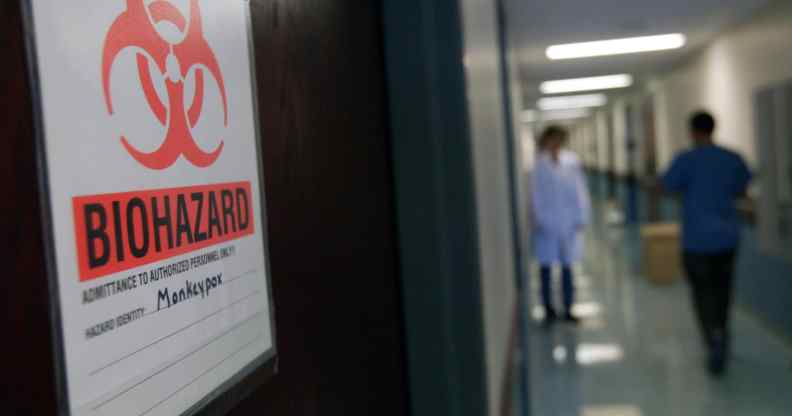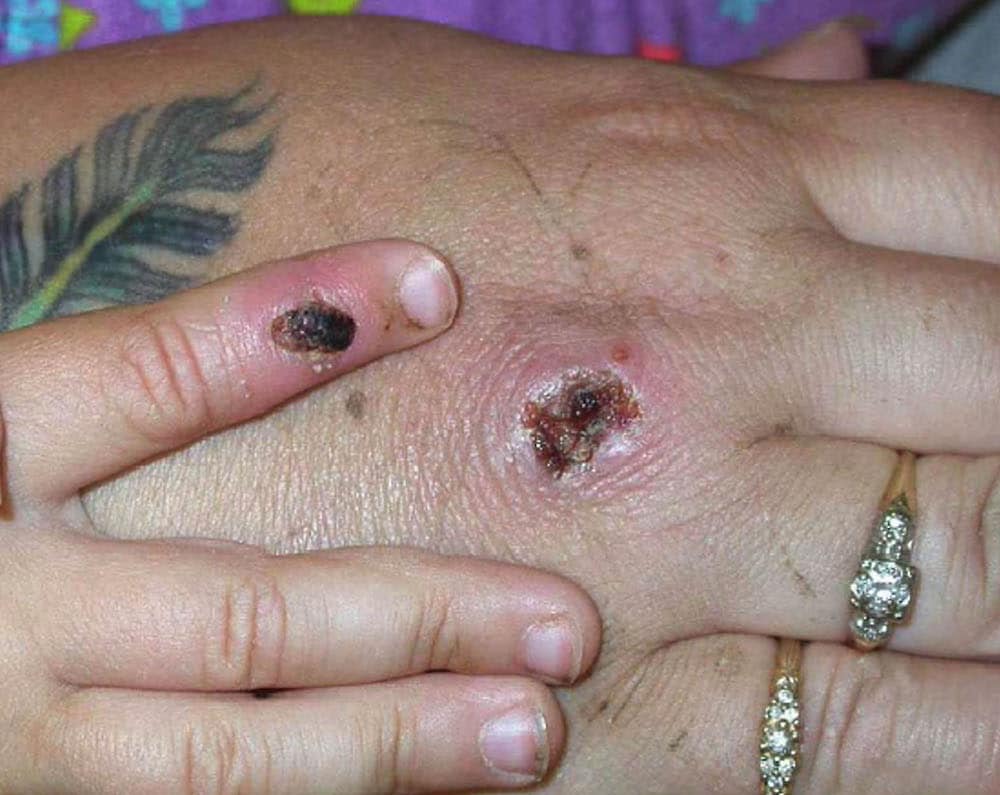Even more monkeypox cases identified as queer men urged to watch out for rashes and lesions

Monkeypox cases are being reported particularly among queer men. (Star Tribune via Getty/ UDY GRIESEDIECK)
As more cases are diagnosed in the UK, officials have confirmed a “spread of monkeypox within our communities”, with queer men particularly at risk.
On Wednesday (18 May), the UK Health Security Agency (UKHSA) said that two more cases had been found in England, bringing the total number of confirmed monkeypox cases to nine since 6 May.
One case was discovered in London and the other in the South East of England, UKHSA said, “with recent cases predominantly in gay, bisexual or men who have sex with men (MSM)”.
Earlier this week, officials confirmed that four queer men had contracted monkeypox in London, and cases among gay and bisexual men have also been seen in Portugal.
Monkeypox is mostly found in Central and Western Africa, but UKHSA said the two most recent cases had no travel links to these areas, and so had likely caught the infection through community transmission.
The virus is milder than other smallpox diseases, and though it has not previously been described as a sexually transmitted infection, the contact associated with sex means it can be passed on. It can also been transmitted with clothing or linens used by a person who has monkeypox.
While the rare virus, which is spread through close contact but is not usually easily transmittable, was recorded for the first time in the UK in 2018, the recent outbreak has been described as “unusual”.
Initial symptoms are flu-like, including fever, headache, muscle aches, backache, swollen lymph nodes, chills and exhaustion.
The rash often begins on the face, before to other parts of the body including the genitals. It can initially look like chickenpox, before forming a scab, which later falls off.

Monkeypox lesions. (Getty/ CDC)
Dr Susan Hopkins, Chief Medical Adviser, UKHSA, said: “These latest cases, together with reports of cases in countries across Europe, confirms our initial concerns that there could be spread of monkeypox within our communities.
“UKHSA has quickly identified cases so far and we continue to rapidly investigate the source of these infections and raise awareness among healthcare professionals.
“We are particularly urging men who are gay and bisexual to be aware of any unusual rashes or lesions and to contact a sexual health service without delay if they have concerns. Please contact clinics ahead of your visit.
“We are contacting any identified close contacts of the cases to provide health information and advice.”
The UKHSA said anyone concerned they have monkeypox should contact NHS 111 or a sexual health clinic, but should notify clinics before attending.
“We can assure them their call or discussion will be treated sensitively and confidentially,” it added.

